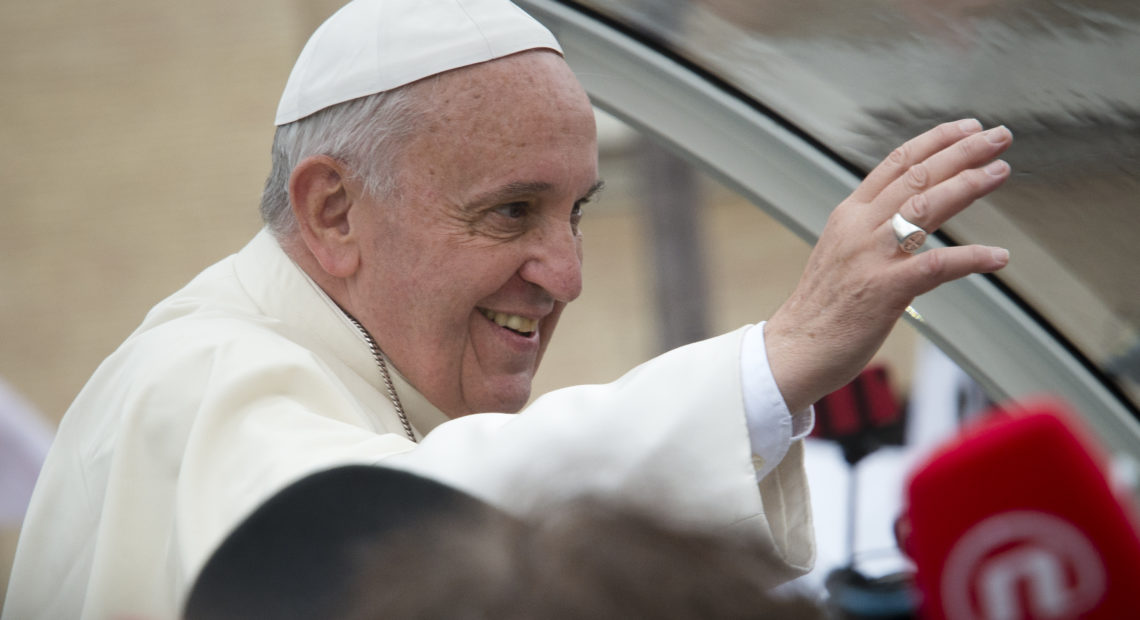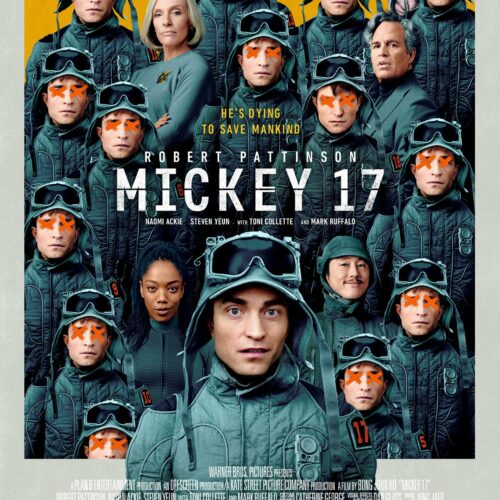
FILM REVIEW: Pontiff Gets Cinematic Pulpit In ’Pope Francis: A Man Of His Word’
In German director Wim Wenders’ new picture, an Argentinian nun who has known Pope Francis for many decades compliments him as the “shepherd of the world.” While he modestly deflects that praise, he clearly has the charisma of a movie star.
Bear in mind that this is not a biographical documentary about the 266th Pope of the Roman Catholic Church. Instead, this is an intimate survey of his papacy and his mission, courtesy of a director known for his curiosity and wide-ranging subject matter. Over the course of 95 minutes, we spend several years with the Pontiff, as he travels to multiple continents, displays his common touch and sense of humor, and addresses the issues which concern him most deeply. What emerges is a thoughtful and engaging portrait of a religious figure whose leadership has resonated well beyond his own church.
Wenders, who often does the English-language voice-overs to his non-narrative feature films, sets the tone here with a reflection on the subject of time – how precious it is, and how little we may have left of it to solve our world’s most pressing problems. Francis takes it from there, characterizing poverty as an “outrage” and lamenting the “culture of waste” that has caused so much environmental degradation. Along the way, he quotes Dostoevsky on the suffering of children and, on a more whimsical note, St. Thomas More’s famous Prayer of Good Humor (“Grant me, O Lord, good digestion, and also something to digest.”) He even dispenses a mother-in-law joke at a family conference in Philadelphia.
The Vatican co-produced the movie, provided a wealth of archival material, and offered Wenders extraordinary access to the Pope – aside from the on-camera, one-on-one interviews.
We accompany Francis to the climate summit in Paris, the Philippines in the aftermath of the 2015 typhoon, refugee camps in Africa, Italian coast guard immigrant rescue missions in the Mediterranean, and Israel’s Yad Vashem memorial to the victims of the Holocaust. We get up close and personal with him as he presses the flesh and grants his blessings to people of all ages and races who see him as a symbol of hope.
Of course, the Catholic Church faces a host of major challenges and scandals of its own. On board an airplane full of reporters, Francis makes the case for welcoming gays into the fold if they embrace the Gospel, and he condemns pedophilia on the part of clergy as “despicable.” He reflects on the need to involve women more fully in the work of the Church, and to respect their contributions to society. However, he makes no mention of them as priests.
Throughout this “personal journey,” as Wenders calls it, we bear witness to a Pontiff who has retained a remarkable degree of humility. He was born Jorge Mario Bergoglio in Buenos Aires 81 years ago, and in 2013, was elected the first Jesuit Pope, the first from the Americas, and the first from the Southern hemisphere. He chose his papal name in honor of St. Francis of Assisi, who famously preached to the birds and reached out to other faiths, while tirelessly serving the poor and the outcast.
Wenders, a three-time Academy Award nominee for his documentaries, has structured this film with care and enhanced it with several artful touches, including time-lapse photography and silent movie-like segments depicting St. Francis in his hometown. He obviously admires his subject and must appreciate Francis’ description of artists as “apostles of beauty.” Now, after its premiere at the Cannes Film Festival, the director can only hope that his latest movie portrait can muster an ecumenical appeal similar to that of the Pontiff.
Related Stories:

Reeder’s Movie Reviews: Mickey 17
Movie poster of Mickey 17 courtesy of Warner Bros. Pictures. Read “You don’t look like you’re printed out. You’re just a person.” In writer-director Bong Joon Ho’s new science fiction

Reeder’s Movie Reviews: Love Hurts
Ah, yes, “the things we do for love.” With all due respect to the British band 10cc, which had a hit with that song back in 1976, the new film from first-time director Jonathan Eusebio demonstrates that not all things leave the best impression.

Reeder’s Movie Reviews: A Complete Unknown
In director James Mangold’s new film, Timothée Chalamet portrays the young Bob Dylan (the professional name he adopted at age 21) from 1961-1965. He gives a remarkably nuanced, accomplished performance in a movie that occasionally gets bogged down in truncated or unnecessary scenes, but not too often. The supporting cast shines as well.
















